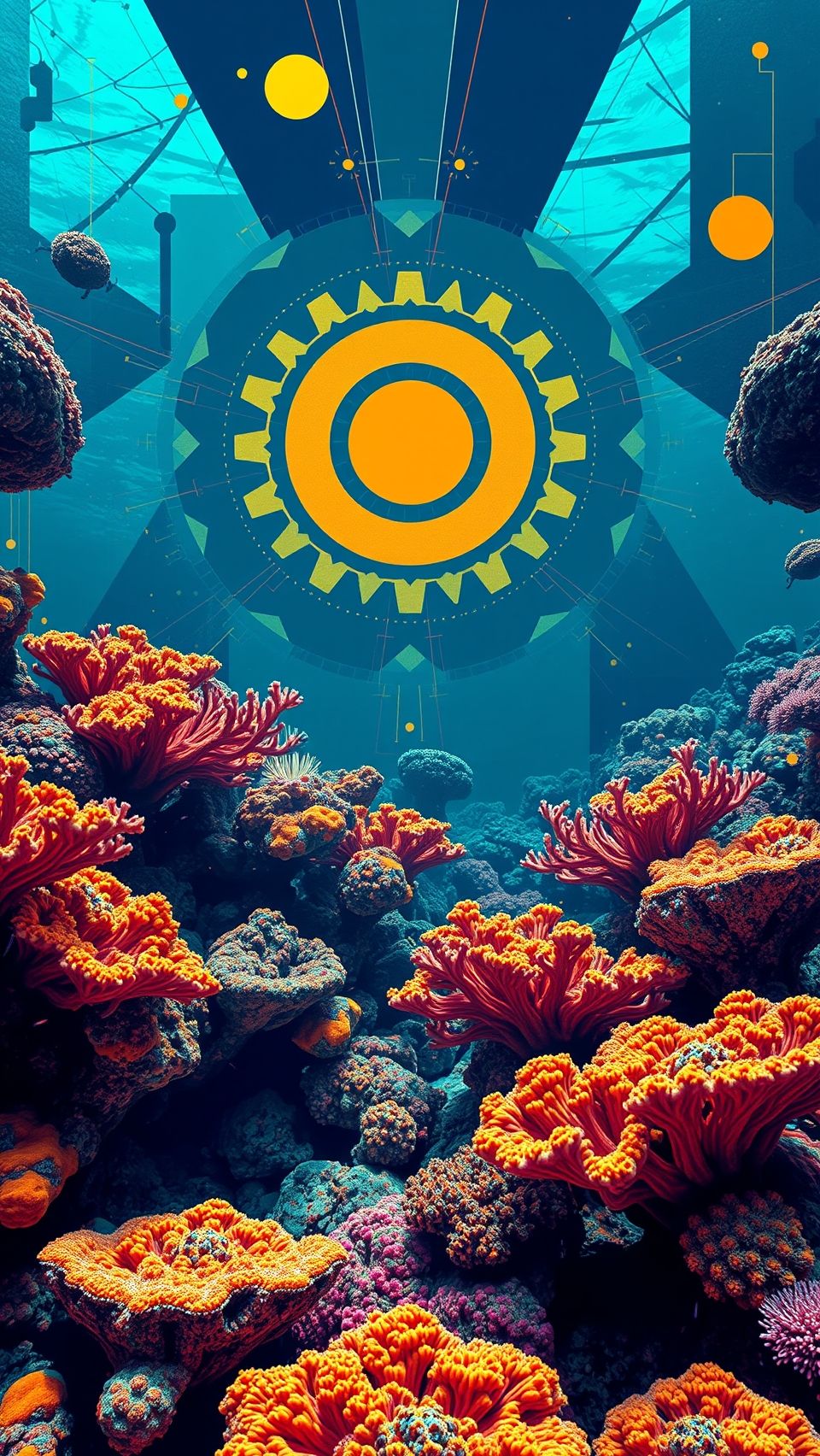Aerovironment Unveils Cutting-Edge Precision Targeting System
AeroVironment, Inc., a leading manufacturer of unmanned aircraft systems, has recently upgraded its …
16. July 2025

Inside Advanced Navigation’s Coral Loss Discovery in the World’s Southernmost Reefs
Advanced Navigation deployed its state-of-the-art underwater Hydrus drones to map the Hall Bank reef in Western Australia, revealing devastating coral loss and discoloration. The robots played a crucial role in shedding light on an escalating crisis at one of the world’s southernmost reefs.
Hall Bank is a small, nearshore reef located off Fremantle in southwest Australia, far beyond the typical latitudinal range for coral reefs. Despite its remote location, the reef has been facing severe environmental challenges. Advanced Navigation’s AUVs conducted a detailed survey to capture high-resolution imagery and 4K video in parallel.
The data collected by Hydrus revealed severe coral bleaching and fragmentation, exposing the urgent need for conservation efforts. The reef’s unique environment, characterized by strong currents and limited sunlight, makes it an ideal location for testing Advanced Navigation’s advanced navigation systems and underwater technology.
Hydrus is a game-changer in marine environmental assessment, its ability to collect high-resolution imagery and 4K video in parallel enables us to capture detailed information about the reef’s structure and ecosystems. The mission was carried out in collaboration with consultancy O2 Marine, which specializes in marine environmental assessment and monitoring.
O2 Marine partnered with Advanced Navigation to demonstrate Hydrus’ capability to collect data and insights for knowledge-sharing in a cost-effective way. “We’re excited to work with them to advance our understanding of coral reefs and the impact of climate change on these critical ecosystems,” said Dr. Alec McGregor, senior AI engineer at Advanced Navigation.
Advanced Navigation has been at the forefront of developing cutting-edge underwater technology, including its Hydrus drones. These autonomous vehicles are equipped with advanced navigation systems, including GPS, sonar, and DVL (Doppler velocity logger), which enable them to navigate complex subsea environments.
The company’s recent advancements in AI, such as large language models (LLMs), are also being explored for potential applications in mission planning, execution, and post-processing phases. LLMs have the potential to enhance Hydrus’ capabilities, allowing it to analyze data more efficiently and provide more accurate insights.
As Advanced Navigation looks towards deeper-sea missions, the company is preparing Hydrus to handle more challenging environments. This includes adding onboard intelligence through AI-driven navigation and adaptive survey behavior, which will enable Hydrus to respond dynamically to unexpected terrain or signal loss.
The company is also working on robust hardware upgrades, particularly around pressure tolerance, to ensure that Hydrus can operate reliably in deeper and harsher underwater conditions. Recent developments in the technology have provided valuable insights into the impact of climate change on coral reefs.
Advanced Navigation’s recent mission to the Hall Bank reef has shed light on an escalating crisis at one of the world’s southernmost reefs. The company’s commitment to marine conservation and sustainability is evident in its ongoing efforts to develop advanced underwater technology, including its Hydrus drones.
A partnership between Advanced Navigation and O2 Marine highlights the importance of collaboration in advancing our understanding of coral reefs and the ecosystems they support. By working together, these organizations can leverage their expertise and resources to drive positive change and protect these critical ecosystems.
Advanced Navigation has several future missions planned for its Hydrus drones, including a recent deployment across shallow reefs off the coast of the Florida Keys. This project was part of an effort to support NOAA’s coral reef photogrammetry and ecosystem monitoring efforts. The mission was successful, with 66 surveys completed and a 92.4% success rate.
As Advanced Navigation continues to push the boundaries of underwater technology, its commitment to marine conservation and sustainability is evident in every mission it undertakes. By leveraging its advanced systems and technologies, the company is working towards a future where we can better understand and protect our oceans.
The partnership between Advanced Navigation and O2 Marine demonstrates the importance of collaboration in advancing our understanding of coral reefs and the ecosystems they support. As we look towards a future where we can better understand and protect our oceans, companies like Advanced Navigation are playing a vital role in driving positive change.
Advanced Navigation’s recent mission to map the Hall Bank reef provided valuable insights into the impact of climate change on coral reefs. The company’s efforts to develop advanced underwater technology will continue to drive positive change in marine conservation and sustainability.